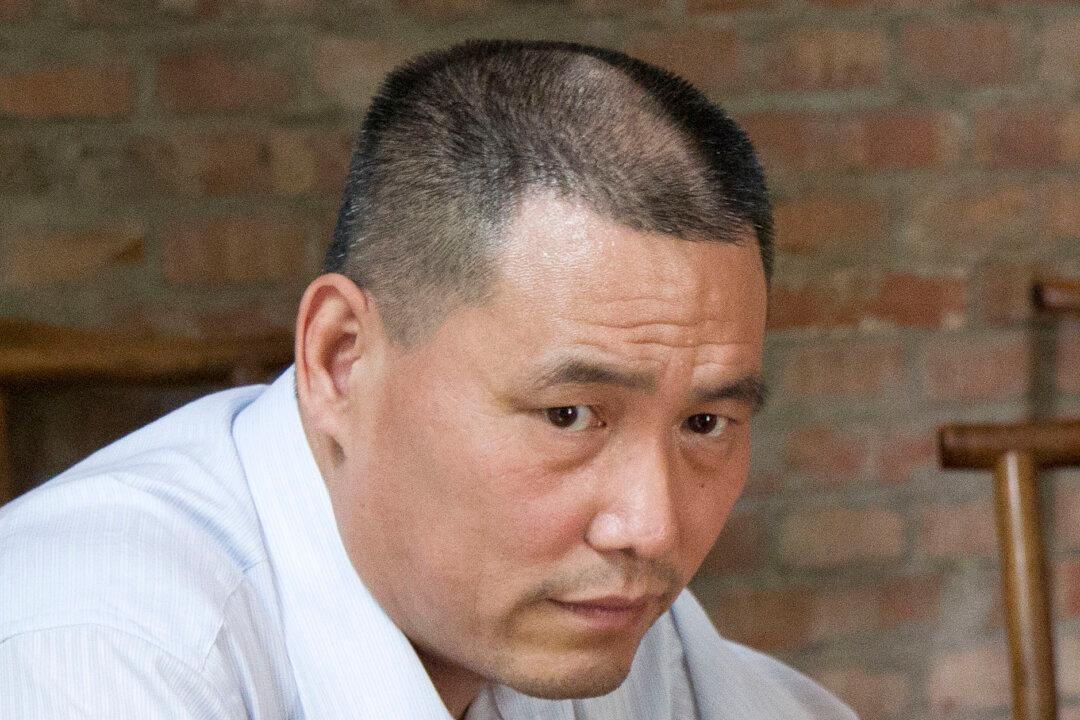Pu Zhiqiang, a prominent Chinese human rights lawyer, was convicted by a Beijing court on Tuesday, Dec. 22, for what most observers consider dubious and politically inspired charges. He was handed a three-year suspended jail sentence, meaning that he will walk free but be accompanied by the specter of constant police harassment.
Rights activists have responded to the sentence with a mixture of frustration at what they see as the injustice of his treatment and relief that it wasn’t worse.
The Beijing Second Intermediate People’s Court found Pu, 50, guilty of “inciting ethnic hatred” and “picking quarrels and provoking trouble,” according to state-run broadcaster China Central Television (CCTV). Pu has already spent 19 months in police detention, and it is unclear if he will be released immediately.
Known for agitating for the closure of the labor camp system and for the disclosure of the truth about the 1989 Tiananmen massacre, Pu was convicted for seven messages he posted on Sina Weibo, a popular Chinese microblogging site. Because the messages were critical of the Chinese regime’s policies and officials, the prosecution of Pu is widely viewed as an effort by the Chinese regime to silence the lawyer politically.
Mo Shaoping, Pu’s defense lawyer, told the Chinese-language edition of Radio France Internationale that Pu won’t be appealing his three years’ jail sentence with a three-year reprieve.
“Given China’s present legal system, Pu knows there is little chance of the court ruling being overturned, and having been detained for 19 months, Pu feels exhausted, and wishes to quietly recuperate,” Mo told RFI.
‘Not One Shred of Joy’
While Pu had seemingly been given a light sentence—he faced up to eight years in jail—Beijing-based Chinese dissident Hu Jia said he felt “not one shred of joy or optimism” at the pronouncement.
“Pu Zhiqiang, like Gao Zhisheng, are both innocent citizens who have been suppressed and suffered retribution for speaking freely and helping the disenfranchised and persecuted,” Hu told Epoch Times in a telephone interview.
Gao Zhisheng is a human rights lawyer who has spent the past seven years in some form of detention. He was serving a three-year suspended jail sentence with a five-year reprieve when police arrested him on the final week of probation. Presently, Gao is under house arrest in his native province of Shaanxi, and has been denied access to a dentist to fix his loose teeth.
Hu Jia likened the suspended jail sentence to “shackles, or a type of straitjacket.”
Pu would not be able to “express his opinions, practice law, and will have no income and struggle to feed his family. The police can summon him at any time,” he said.
“It is very difficult to say what may happen next,” Hu added.
Conversely, Chinese rights lawyer Liu Xiongbing thinks that Pu Zhiqiang won’t be as harshly treated as Gao Zhisheng, because the latter was detained under a “unique circumstance.” In 2005, Gao had provided legal assistance to practitioners of Falun Gong, a traditional self-cultivation discipline that was targeted by the Chinese regime for brutal persecution. “Then … no one else dared to speak, had the courage, or the audacity” to defend Falun Gong practitioners, and hence Gao was “cruelly suppressed.”
‘No Criminal’
Staff from Amnesty International, who has been calling for the release of Pu Zhiqiang since he was detained last May, took a positive view of the suspended jail sentence.
“Pu’s verdict probably as good as it could get given laws that criminalize criticism of the Party & ongoing crackdown on rights activists,” wrote Nicholas Bequelin, Amnesty International’s regional director for East Asia, in a Twitter post. In another post, Bequelin said Pu’s sentence was a “political compromise” that allowed the regime’s public security authorities to “save face and keep the screws on Pu.”
In a press release, William Nee, an Amnesty researcher, said: “Clearly it is positive that Pu Zhiqiang is unlikely to spend another night in jail, yet that cannot hide the gross injustice against him. He is no criminal and this guilty verdict effectively shackles one of China’s bravest champions of human rights from practicing law.”
Outside the court, Chinese police detained at least 12 activists who had showed up to support Pu Zhiqiang. Police also confiscated the press cards of BBC staff and accused them of operating “without a permit and violating Chinese laws.“
Police were rough when Pu’s trial opened on Dec. 14, shoving Western diplomats, journalists, and regular Chinese citizens who supported him.
“The disgraceful police operation outside Pu Zhiqiang’s trial only underscores why China needs defenders of free speech like Pu more than ever,” said Amnesty International’s William Nee in the statement. “All those detained solely for peacefully expressing their support for Pu should also be immediately and unconditionally released.”
‘Tough Journey Ahead’
The sentencing of Pu is the Chinese regime’s latest move against rights lawyers and activists in China. To date, over 300 lawyers and activists have been targeted by the regime since dozens were arrested in a massive July crackdown, according to China Human Rights Lawyers Concern Group, a Hong Kong-based NGO.
The extreme political atmosphere has silenced some. Xu Lanting, a law professor at the China University of Political Science and Law and an attorney with a Beijing law firm, said he had no comment and quickly hung up when contacted by telephone after the Pu verdict.
Liu Xiongbing reflected on the wider implications of the case in a telephone interview. “China has a tough journey ahead on the road to becoming a modern country that embraces genuine free speech and human rights,” he said.





